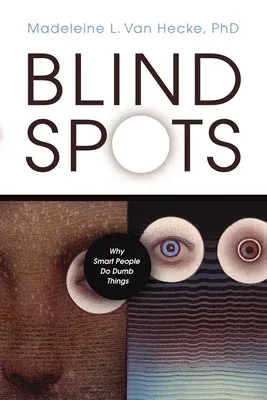A woman planning a dinner party calls a gourmet caterer and learns that
"Chateaubriand" can be ordered. To which she responds, "No, thanks.
We're going to take care of the wine ourselves." The dead silence at the
end of the phone is her first clue that something is amiss. A CEO
attempts to put an end to complaints from employees about the demeaning
behavior of certain managers by berating the managers before the staff
-- thus reinforcing the very behavior he's trying to correct. We often
criticize such incidents with remarks like "How dumb!" or "What was he
thinking?" But psychologist Madeleine L. Van Hecke argues that much of
what we label stupidity can better be explained as blind spots. Just as
the blind spot in the driver's side mirror can swallow up a passing car,
patterns in the way we think can likewise become blind spots, sifting
out information and observations that to other people seem obvious.
Drawing on research in creativity, cognitive psychology, critical
thinking, child development, education, and philosophy, Dr. Van Hecke
shows how our assets as thinkers create the very blind spots that become
our worst liabilities. She devotes a chapter to each of ten mental blind
spots that afflict even the smartest people: not stopping to think,
jumping to conclusions, my-side bias, getting trapped by categories, and
much more. At the end of each chapter she offers tactics for overcoming
that specific blind spot, so we can become more creative and competent
thinkers.Full of funny, poignant stories about human foibles, Blind
Spots offers many insights for improving our social and political lives
while giving us fresh slants into the minds of people who are poles
apart from ourselves.


